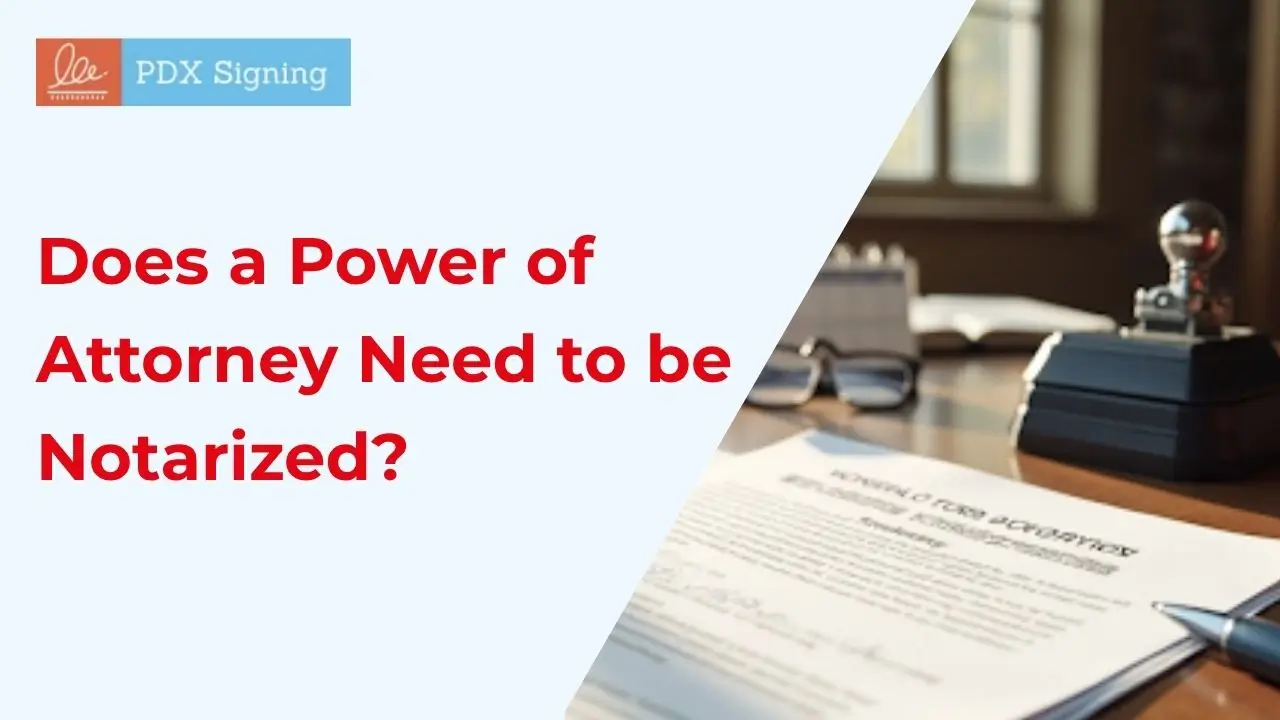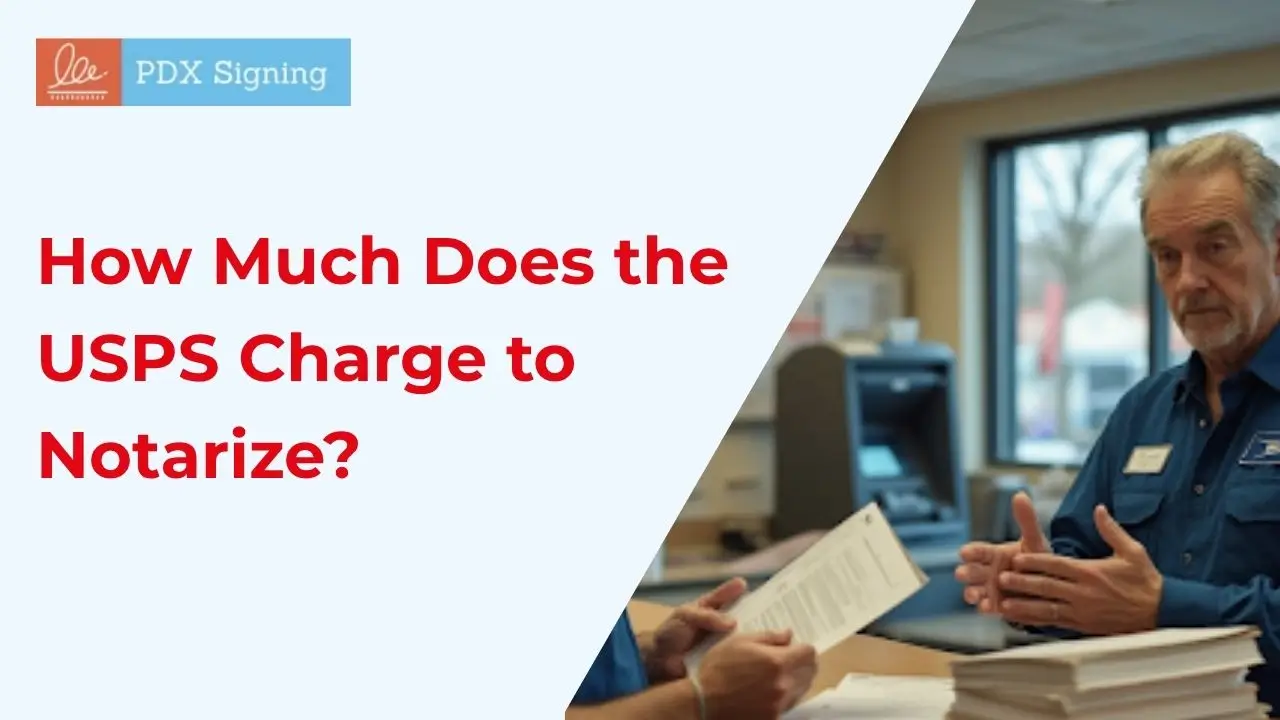A notary signing agent ranks among the most profitable specialties in the notary profession. My experience with over 1000 signings proves this point. These professionals earn $50 to $200 per appointment to handle loan document packages. This amount significantly exceeds standard notary fees.
Loan documents set signing agents apart from regular notary publics, particularly in real estate deals. Most transactions involve document packages that exceed one hundred pages. Each page needs proper signatures and notarization. The profession continues to grow. Today, the United States has 4.4 million notaries, and many double as loan signing agents. The market saw a fundamental change as remote online notarization (RON) deals jumped 547% between 2019 and 2020.
This piece covers everything you need to know about the profession. You’ll learn what makes signing agents different from regular notaries. The discussion includes success factors, technology’s impact, and practical steps to launch your signing agent business. For professional notary and loan signing services, visit PDX Signing.
Notary Signing Agent vs Notary Public

The main difference between regular notaries and signing agents is their expertise and what they focus on. They build on the same basics but have big differences in several areas.
Scope of work and document types
Regular notary publics offer general notarization services for documents of all types. They check signers’ identities and witness signatures. Signing agents focus only on loan document packages that deal with real estate transactions. These experts work with title companies, mortgage lenders, and real estate firms to make closings smoother.
NSAs work with specific documents that you won’t often see with regular notaries:
- Refinance documents when borrowers replace existing loans
- Purchase documents for new home buyers
- Seller’s packages, including grant deeds and warranty deeds
- Reverse mortgage documents
- Home Equity Lines of Credit (HELOC) paperwork
Signing agents do more than just witness signatures. They make sure documents are filled out correctly and turned in on time. This is vital because banks might not fund loans if documents are late.
Training and certification differences
The law doesn’t require signing agents to be certified. However, mortgage finance companies prefer it to meet the Consumer Financial Protection Bureau rules. Most signing agents take special training to learn the ins and outs of loan packages.
Getting certified usually means:
- Background screening (renewed annually)
- Training on loan document procedures
- Examination to prove knowledge of mortgage closings
The National Notary Association’s complete certification programs teach signing agents how to explain important documents. They learn to avoid mistakes and keep signings secure while protecting borrowers’ privacy.
Legal limitations and responsibilities
Notary publics and signing agents must follow strict legal rules. Neither can give legal advice unless they’re attorneys. Real estate closings in nine “attorney closing states” like Connecticut, Massachusetts, and Georgia must have attorneys present. This limits what signing agents can do.
Signing agents need more insurance coverage because they handle high-value financial documents. The Signing Professionals Workgroup suggests they have Errors and Omissions insurance of at least $25,000. This makes sense since claims against signing agents average around $14,000.
Signing agents also need to protect consumers’ nonpublic personal information according to strict privacy rules.
What Makes a Good Notary Loan Signing Agent?
My experience with thousands of signings shows that exceptional notary signing agents share unique qualities. You need more than just a commission to succeed in this field. The right mix of personal traits and professional skills makes all the difference.
Attention to detail and professionalism
The best signing agents pay close attention to every detail. Small errors can create big problems that delay transactions or cause legal issues. Everything counts – from identity checks to complete documents and accurate records. A wrong date or a missing signature can void a document and create extra costs and frustration. The most successful agents always double-check their paperwork before submission.
Looking professional goes beyond accuracy. My years of experience show that proper attire, punctuality, and courtesy build client confidence. This professional image builds trust and brings repeat business naturally.
Understanding of loan documents
You must know your loan documents inside and out. The best agents quickly find key information and show it to borrowers without giving legal advice. To name just one example, a skilled agent spots interest rates on a Note and points them out, helping borrowers make informed choices.
A solid grasp of common documents like Deeds of Trust, Notices of Right to Cancel, and Closing Disclosures helps agents work quickly. This knowledge ensures borrowers understand what they sign.
Neutrality and legal compliance
Excellence in signing work starts with integrity and fairness. Your role requires identity verification, checking for coercion, and ensuring document comprehension. Staying neutral matters greatly – you can’t have financial stakes in transactions you aid.
Communication and time management
Strong communication helps explain complex procedures without crossing into legal advice territory. Clear explanations prevent confusion and boost client trust. Good time management stops overbooking and keeps your schedule on track. Successful agents set aside time for paperwork and growing their business. These non-billable hours become investments that pay off later.
The Rise of Remote Online Notarization (RON)
Remote online notarization (RON)[link_1] has altered the map of notary services over the last several years. Virginia led this change in 2011 by becoming the first state to authorize RON, and other states started to follow its lead. More than 40 states and the District of Columbia now allow remote notarizations. This represents a complete change in notarial service delivery.
How RON is changing the industry
The COVID-19 pandemic became a driving force behind RON adoption, and usage jumped by 547% in 2020. This unexpected surge turned a steady rise into an urgent priority across the industry. Many states quickly enacted emergency measures after initial hesitation. More than 30 states put temporary RON provisions in place during just two weeks of March 2020.
RON changes the way notaries connect with signers through digital platforms instead of meeting face-to-face. Notaries can now serve clients anywhere in their jurisdiction while staying in their commissioning state. This removes traditional geographic limitations completely.
Benefits of RON for signing agents
Notary signing agents get several key advantages from RON:
- Increased efficiency – You can complete more signings quickly without travel time between appointments
- Schedule flexibility – You decide when to conduct signings and set your hours
- Reduced expenses – Platform fees and computer equipment are your main upfront costs, with no travel expenses
- Expanded client reach – You serve clients throughout your state without distance barriers
Security and error reduction with digital tools
RON’s security features often surpass traditional methods. The system uses multi-factor authentication with knowledge-based questions about personal history that only legitimate signers would know. State-of-the-art credential analysis technology authenticates IDs better than visual checks alone.
Digital documents minimize errors through automated systems that catch incomplete fields or missing signatures before submission. The RON process creates a tamper-evident record through an electronic audit trail and recorded video of each transaction.
Training, Certification, and Long-Term Growth
Professional training serves as the foundation of a successful notary signing agent business. Your state’s requirements don’t matter – education creates the most important advantages in this competitive field.
Why training is essential despite not being mandatory
Most states don’t legally require certification, but mortgage finance companies strongly prefer it to meet Consumer Financial Protection Bureau (CFPB) compliance requirements. Training provides well-laid-out education on complex mortgage closings. This beats trying to research topics on your own.
Certification ended up creating instant trust and credibility. It works as a stepping stone toward a successful NSA business and opens doors to more assignments with larger clients. Title companies and lenders choose trained agents because this reduces their risk exposure and optimizes operations.
Annual background checks and compliance
Everyone involved in the lending process must undergo annual background screenings, including notary signing agents. The complete screening looks at 10 years of federal, state, and county records.
A standard background check includes:
- Social Security Number verification
- Criminal court searches at the county and federal levels
- Motor vehicle records
- Sex offender registry (automatic disqualification)
- Terrorist watch list screening (automatic disqualification)
The Signing Professionals Workgroup uses a point system. Passing requires scoring below 25 points. Points vary by offense, ranging from 2 points for minor violations to 25 for serious crimes.
Opportunities for specialization and scaling your business
In stark contrast to this, many businesses need substantial startup capital. A notary signing agent business typically costs under $1,000. Experience opens many growth paths.
Successful notaries vary their services beyond loan signings. This creates a steady income, whatever the economic situation. Experience might lead you to scale into a full-fledged signing service. You could coordinate other notaries for title companies and lenders.
Direct relationships with escrow officers and real estate professionals help minimize work while maximizing income. A handful of consistent direct clients can help establish a thriving business that grows steadily over time.
Final Thoughts on Building a Successful Notary Signing Agent Career
My experience with over 1,000 signings shows how this specialized notary field creates great opportunities. People who invest time in proper training and certification reap the rewards. The money makes it worth the effort. You can earn $50-$200 per appointment, which beats standard notary fees and gives you the flexibility you want.
The best signing agents share some key traits. They pay close attention to detail and know loan documents inside out. Their steadfast dedication to neutrality and strong communication skills are the foundations of a successful practice. These qualities, combined with proper certification, make a powerful package that lenders and title companies seek.
The digital world keeps changing faster, especially with Remote Online Notarization taking off. This technological change not only survived but soared during recent global challenges. RON transactions grew by 547%. Smart signing agents who welcome these digital tools are at the vanguard of industry growth. They also make fewer errors and improve security.
This profession sits at an exciting point between tradition and state-of-the-art technology. Despite new advances, the core role stays the same: you help clients with important life moments while protecting document integrity. Therefore, signing agents who focus on learning, adapt to tech changes, and keep high professional standards will find this career rewarding and meet their goals for years to come. For professional notary and loan signing services, check out PDX Signing.
FAQs
Q1. What is the main difference between a notary public and a notary signing agent?
A notary signing agent specializes in handling loan documents, particularly for real estate transactions. While not all notary signing agents are notaries public, not all notaries public are signing agents. Signing agents undergo additional training to understand complex loan packages and typically earn higher fees per appointment.
Q2. How much can a notary signing agent expect to earn per assignment?
Notary signing agents typically earn between $50 – $200 per appointment. This is significantly higher than standard notary fees, making it one of the most lucrative specializations in the notary field.
Q3. What qualifications are needed to become a successful notary signing agent?
Successful notary signing agents possess meticulous attention to detail, thorough knowledge of loan documents, strong communication skills, and the ability to maintain neutrality. While not always mandatory, professional certification is highly recommended and preferred by many mortgage finance companies.
Q4. How has technology impacted the notary signing agent profession?
The rise of Remote Online Notarization (RON) has dramatically transformed the industry. RON allows notaries to perform services via digital platforms, increasing efficiency, offering schedule flexibility, and expanding client reach. It also provides enhanced security features and reduces errors through digital tools.
Q5. What are the growth opportunities for notary signing agents?
Notary signing agents have various opportunities for growth and specialization. They can diversify their services beyond loan signings, build direct relationships with escrow officers and real estate professionals, or even scale up to running a full signing service, coordinating other notaries. The initial investment is relatively low, typically under $1,000, making it an accessible career option with potential for expansion.






